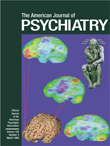Paranoid Schizophrenia—Malingering or Factitious Disorder?
To the Editor: The recent clinical case conference by Katherine J. Michels, M.D., and Robert Michels, M.D. (1), described an enigmatic and fascinating patient. They carefully describe the initial presentation and the subsequent prolonged psychiatric hospitalization of this difficult patient. The authors also discuss the dilemmas faced by the treatment team because of the patient’s refusal to divulge information about himself. Nonetheless, several important issues remain unclear. They do not provide much information about the patient’s medical history. The patient apparently reported a history of three deep-vein thromboses for which he took warfarin. The patient evidently took an overdose of this anticoagulant, as well as acetaminophen with codeine, that resulted in elevated coagulation times, hematuria, and guaiac-positive stools. Did the psychiatry team believe this patient had a coagulation disorder? Was warfarin prescribed during his prolonged psychiatric hospitalization?
His medical history is of particular interest because of the distinct possibility that this patient had a factitious disorder with psychologic and possibly physical symptoms. This mysterious patient’s apparent goal was to gain hospital admission and then extend his hospitalization by withholding important information. The patient’s decision to travel to New York to become anonymous is somewhat suggestive of peregrination. Without the patient’s cooperation, the treatment team clearly could not determine where and when he had previously sought medical care. I propose that the authors add the diagnosis of factitious disorder to their psychiatric differential diagnosis in this challenging case.
1. Michels KJ, Michels RM: Clinical case: unknown (clinical case conference). Am J Psychiatry 1997; 154:1599–1601Abstract, Google Scholar



